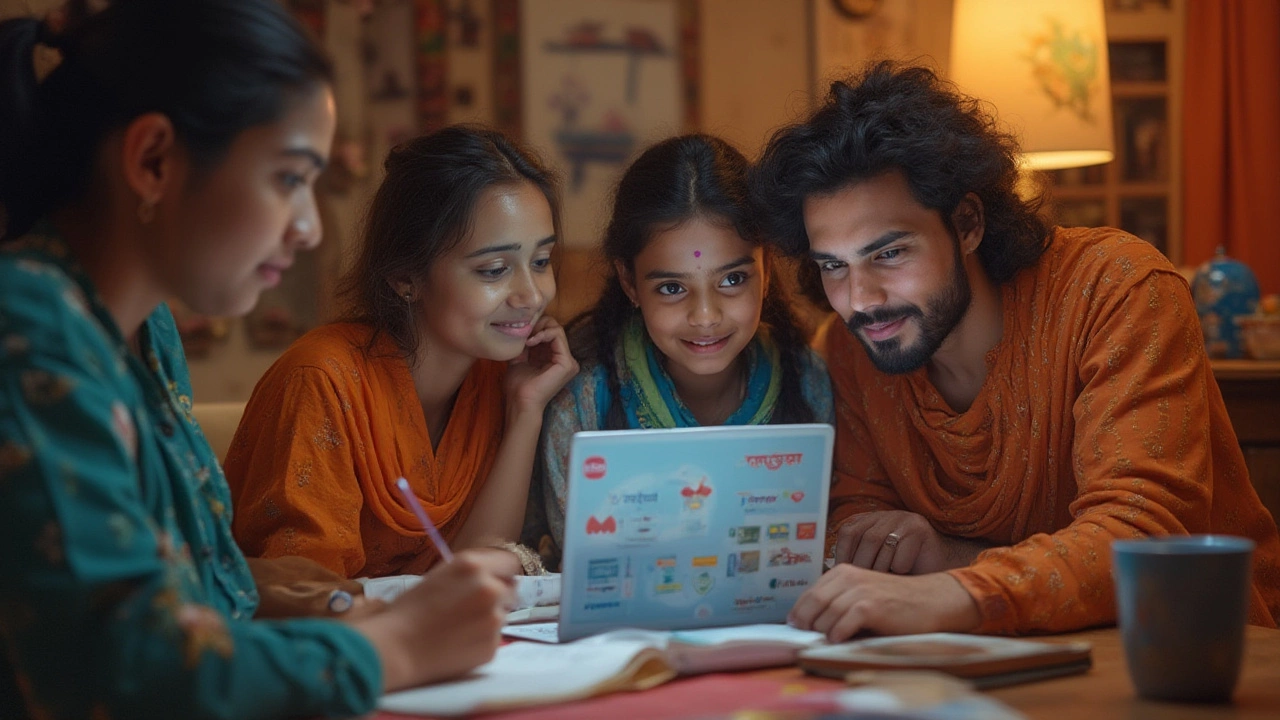There’s a secret most adults already know: we never stop learning. But finding the best free online learning platform feels a bit like hunting for buried treasure—exciting, full of wild promises, and sometimes confusing. Take me, a dad trying to learn to write Python just to help my daughter Orla with her latest project—only to discover the sheer number of online sites out there that say “100% free” (but some come with sneaky catches). Which ones give real value without waving a paywall after you’re hooked?
What Makes a Free Online Learning Platform Stand Out?
Let’s face it: not every site labeled “free” deserves your time. Plenty toss up flashy banners, but after a few clicks, you’re asked to subscribe, pay for certificates, or hand over your credit card just to see half a lesson. The difference between a decent free learning platform and a great one sits in a few key areas: depth of content, how well it’s organized, community or instructor support, and whether what you learn is actually useful—or just quiz fluff.
Let’s break it down with some hard facts and experiences:
- Content Variety and Depth: The best platforms don’t just offer a single subject. For example, Khan Academy teaches everything from algebra to art history, and not in bite-sized filler—their stuff goes deep.
- User Experience: Coursera and edX offer a taste of Ivy League lectures (yes, some classes are genuinely free if you don’t need a certificate). Navigation matters—a messy dashboard or endless popups will just make you give up.
- Quality over Quantity: Over 80% of users in a 2024 EdTech survey said they quit learning when videos lacked structure—nobody wants to wander through 60 hours of unedited content.
- Assessment and Feedback: Platforms like FutureLearn and Saylor Academy use peer-reviewed assignments and interactive quizzes, which actually help material stick.
- Credential Transparency: Some let you learn for free yet charge for certificates. Others, like freeCodeCamp, offer completely no-cost certification. If proof of learning matters to you, don’t skip the fine print.
- Accessibility: The best sites aren’t just desktop-based. Mobile-friendly design matters, whether you’re on the bus or sneaking in a lesson during your lunch break.
Every year, millions log onto online study sites. According to Class Central’s 2025 report, over 220 million learners have taken MOOCs (Massive Open Online Courses) since their boom in 2012. About 60% choose free versions.
| Platform | Best For | True Free? | Certificate Free? | Active Users (2025) |
|---|---|---|---|---|
| Khan Academy | School-level subjects, test prep | Yes | No (but you get badges) | 192 Million |
| Coursera | University-style lectures | Partial (full courses, limited without pay) | No (need payment for certificates) | 123 Million |
| futureLearn | Diverse global courses | Yes (audit mode) | No (certificate paid) | 17 Million |
| edX | Advanced university content | Yes (audit track) | No (paid certificates) | 51 Million |
| Saylor Academy | Career, business, IT | Yes | Yes | 2 Million |
| freeCodeCamp | Programming & web dev | Yes | Yes | 23 Million |
Each of these platforms brings something unique, but don’t ignore little gems like MIT OpenCourseWare (for full-length university courses), Alison (for skills and diplomas), or even YouTube, where entire playlists rival paid classes. Personally, I’ve seen freeCodeCamp projects land people new jobs and Khan Academy math lessons turn F-students into B-students—Orla included.

The Top Platforms: Strengths, Weaknesses, and Real-World Tips
Trying to pick the best online learning platform for free use is like choosing the right tool in a messy garage—you want the one that suits your exact need, is reliable, and isn’t locked away behind an upgrade fee. Here’s how the most popular ones actually stack up when you put them to the test (or try to explain Python loops to a teenager):
- Khan Academy: Absolutely free. Friendly interface. Great for kids, high schoolers, and anyone brushing up on fundamentals. Weak spot: not much for advanced or niche topics.
- freeCodeCamp: Incredible for anyone wanting to land a tech job or do real projects. All lessons and certifications are free. Community is supportive, forums are lively. Some find it intense—expect to code, not just watch.
- Coursera and edX: Want Ivy League lectures? Both give them—if you’re fine skipping paid certificates. You can audit most courses (learn all content but don’t get official completion). Some find the “teaser” model annoying—everything feels premium yet slightly out of reach without cash.
- FutureLearn: Great for global, specialized subjects that aren’t as common elsewhere. You get most course material free, but access sometimes expires unless upgraded.
- Saylor Academy: Under-the-radar goldmine for full curriculum and certification at zero cost. Less fancy, but very practical for self-paced learning or adult career changes.
Now, a few practical tips from hard-earned experience:
- Always check if "free" means “free forever” or “free for the first month.” Platforms change their terms yearly. Read FAQs or look for user reviews in places like Reddit or Quora for the latest insights.
- Focus on platforms with active communities or forums. Whether it’s troubleshooting JavaScript in freeCodeCamp or physics in Khan Academy, real people helping is a lifesaver. Even big names like edX offer discussion boards overseen by TAs.
- Look at the extra materials: downloadable cheat sheets, interactive problems, and forums. These can be worth as much as the lessons themselves—a big reason some people stick to freeCodeCamp or Saylor Academy.
- If mobile learning matters (let’s be real, for most parents or busy adults it does), check mobile app reviews before you commit. Some, like Khan Academy, nail it. Others lag behind.
- Hungry for a specific skill like graphic design or public speaking? Don’t shy from YouTube or LinkedIn Learning’s free trials for specialized tutorials—use them strategically, then move on.
- Doubt your motivation? Pair up with a friend. When I pledged to study SQL alongside Orla, we went farther than either of us solo. Accountability makes a world of difference.
Remember, more options bring more confusion. Track what works for YOU, whether it’s formal structure or playful exploration. And don’t be afraid to bail early if the platform doesn’t click—your time matters.

Choosing What’s Right: Goals, Motivation, and Going Beyond “Free”
The biggest myth? One platform fits all. Your “best” online learning platform changes whether you’re a parent, a student hustling for university, or someone switching careers at 35. Here’s how to narrow down the choices so it isn’t overwhelming:
- Set Clear Goals: Just “learning something new” works for a rainy weekend. For a career boost or higher grades, narrow your scope—like “learn Python for data analysis” or “pass Grade 11 math.” Every platform has strengths: Khan Academy for math/science, freeCodeCamp for coding, FutureLearn for quirky topics like forensic linguistics.
- Evaluate Your Motivation: Are you someone who needs structure and deadlines? Coursera and edX excel here—most courses have weekly reminders. Prefer to go at your own pace? Saylor Academy and Khan Academy never guilt-trip you.
- Check Assessment Options: Not every platform offers tests or hands-on projects. Look for those that do if you learn by doing, not just by reading or watching.
- Review Accessibility: Got spotty WiFi, an old laptop, or only a phone? MIT OpenCourseWare and Alison allow downloads and off-grid study.
- Look for Transferable Credentials: Want a free certificate that actually means something? freeCodeCamp’s certification is recognized across tech companies. Saylor Academy’s credits can even transfer to partner universities.
- Think Beyond Just Lessons: Discord channels, Slack groups, and subreddits around specific platforms are active day and night, with real users sharing their best hacks or fixing bugs in real time—that’s community, not just learning.
- Mix and Match: The magic, sometimes, is in DIY curriculums: taking math on Khan Academy, switching to Crash Course on YouTube for history, then blending freeCodeCamp projects for resumes. The internet rewards curiosity, not rigid loyalty.
And don’t skip out on recent upgrades or pilot programs. In 2025, edX’s AI-powered progress trackers help keep you on task, while Khan Academy now uses generative AI tutoring (think “chat with your homework instead of staring at it blankly”). Saylor Academys added micro-credentials, making short-form skills more verifiable. Even freeCodeCamp launched a “100 Days of Code” tracker for people prone to dropping out at Day 23 (hello, fellow procrastinators).
Best online learning platform? It depends if you value community, credentials, or pure content. Free is just the entry fee; what you build with it is the real reward. I see it every time Orla solves a tricky physics problem using a Khan video, high-fives me, and says, “Wow...this stuff actually works.” That’s worth more than any badge, certificate, or even the world’s fanciest platform logo.
